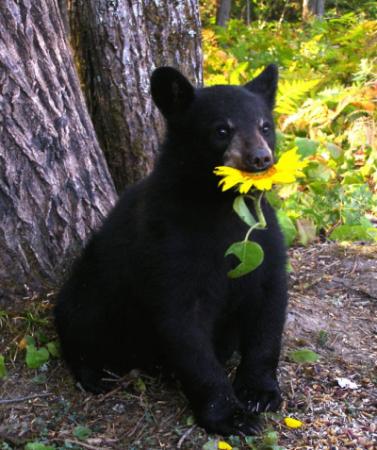What Do Bears Do in March March at a Glance
Some black bears leave their dens to walk around, stretch their legs and then go back to sleep. Other bears leave dens for good. Bears emerge skinny, groggy and thirsty and soon go looking for roughage. Newborn black bear cubs keep growing in their dens. Yearlings that denned up with mom last fall celebrate their first birthday. Bears get new “shoes.”
Resetting The Bear Snooze Alarm
Hibernating bears may temporarily leave their dens and do a short walk-about before curling up and going back to sleep. Bedding in the den might be several inches of grasses, moss, leaves, pine needles and tree branches.
Some Black Bears Leave Dens For Good
In March many full-grown male bears begin to emerge from their winter dens. Bears that denned up in poor condition and survived the winter may also leave their dens. Why would a bear den up in poor condition? It might be injured, or a freeze or wildfire damaged acorns and berries and made it tough to pack on the pounds needed to stay healthy all winter.
Bears Are Skinnier, Groggy And Thirsty
Since bears can lose more than thirty percent of their body weight over their long winter’s fast, you’d think they’d make a beeline for the nearest food source. But most bears emerge drowsy and lethargic and spend their first few days drinking lots of water, eating snow if there is no water available and cleaning out their systems before starting to prowl around searching for food. It’s not uncommon for bears to continue to lose weight the first few weeks they are back out into the world.
Bears will soon be nibbling on plants that provide some roughage and help clear their kidneys and digestive system (what people think of as fiber, and for the same reason). Bears eat lightly at first and look for old berries, rose hips and acorns along with winterkill carcasses. Eventually bears will go in search of more substantial meals, so now is a good time to make sure anything around your home and property that could possibly attract a hungry bear is stored out of sight, smell and reach. Click to learn how to be BearWise at home from the author of this information: https://bearwise.org/


